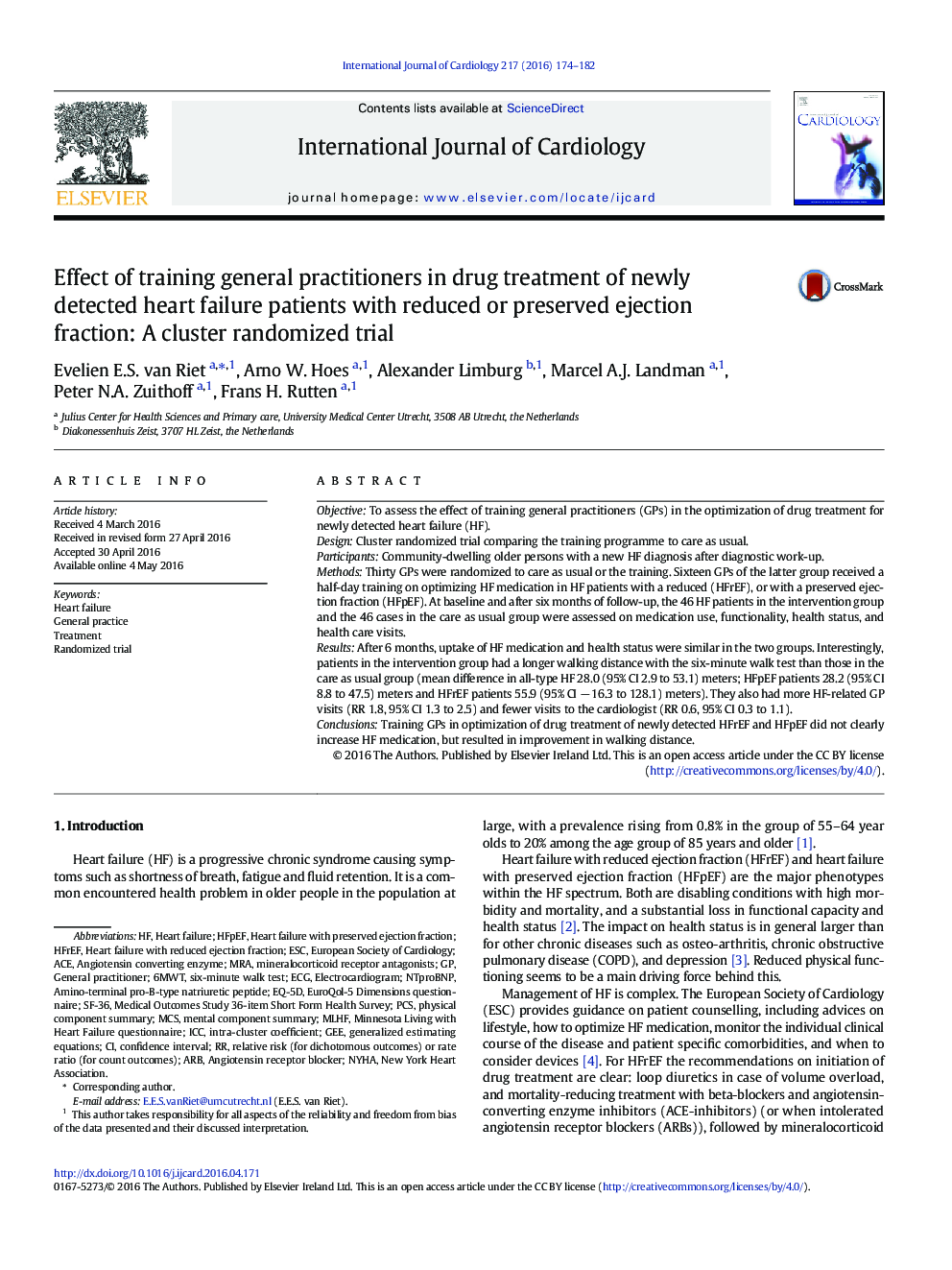| Article ID | Journal | Published Year | Pages | File Type |
|---|---|---|---|---|
| 5964259 | International Journal of Cardiology | 2016 | 9 Pages |
ObjectiveTo assess the effect of training general practitioners (GPs) in the optimization of drug treatment for newly detected heart failure (HF).DesignCluster randomized trial comparing the training programme to care as usual.ParticipantsCommunity-dwelling older persons with a new HF diagnosis after diagnostic work-up.MethodsThirty GPs were randomized to care as usual or the training. Sixteen GPs of the latter group received a half-day training on optimizing HF medication in HF patients with a reduced (HFrEF), or with a preserved ejection fraction (HFpEF). At baseline and after six months of follow-up, the 46 HF patients in the intervention group and the 46 cases in the care as usual group were assessed on medication use, functionality, health status, and health care visits.ResultsAfter 6 months, uptake of HF medication and health status were similar in the two groups. Interestingly, patients in the intervention group had a longer walking distance with the six-minute walk test than those in the care as usual group (mean difference in all-type HF 28.0 (95% CI 2.9 to 53.1) meters; HFpEF patients 28.2 (95% CI 8.8 to 47.5) meters and HFrEF patients 55.9 (95% CI â 16.3 to 128.1) meters). They also had more HF-related GP visits (RR 1.8, 95% CI 1.3 to 2.5) and fewer visits to the cardiologist (RR 0.6, 95% CI 0.3 to 1.1).ConclusionsTraining GPs in optimization of drug treatment of newly detected HFrEF and HFpEF did not clearly increase HF medication, but resulted in improvement in walking distance.
